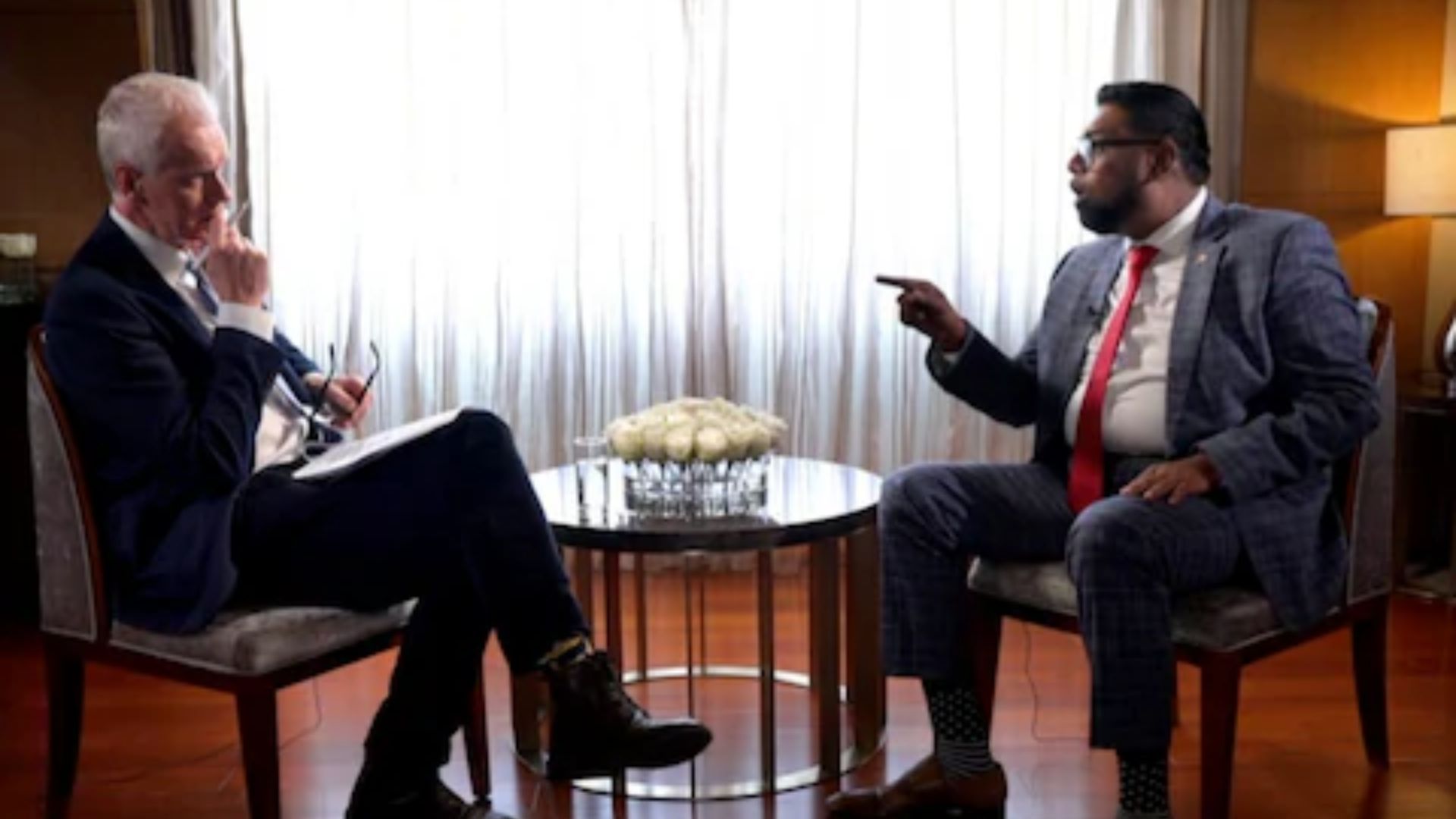Guyanese President Irfaan Ali’s strong criticism of “Western hypocrisy” regarding carbon emissions has gained widespread attention. During an interview with BBC journalist Stephen Sackur, President Ali responded passionately to questions about Guyana’s carbon emissions, particularly in light of its plans to extract oil and gas off its coast.
In a viral excerpt from the interview, President Ali is seen interrupting the journalist’s question and challenging him on whether he has the “right to lecture” him on climate change. He also questions if the journalist is beholden to those responsible for environmental damage through the Industrial Revolution and who are now criticizing Guyana.
President Ali responded to the journalist’s assertion that Guyana’s oil and gas extraction would result in over two billion metric tonnes of carbon emissions from its coast by highlighting Guyana’s significant forest cover. He said, “Do you know that Guyana has a forest forever that is the size of England and Scotland combined? A forest that stores 19.5 Gigatons of carbon, a forest that we have kept alive.”
When questioned by the journalist about whether Guyana’s forest size gives it the right to extract oil and gas and release emissions, President Ali responded assertively, stating, “Does that give you the right to lecture us on climate change? I am going to lecture you on climate change because we have kept this forest alive. The store’s 19.5 gigatons of carbon that you enjoy, that the world enjoys, that you don’t pay us for, that you don’t value, that you don’t see a value in, that the people of Guyana has kept alive.”
“Guess what? We have the lowest deforestation rate in the world. And guess what? Even with our greatest exploration of the oil and gas resource we have now, we will still be, net 0. Guyana will still be net 0 with all our exploration,” he added.
The Guyanese President made a bold statement regarding what he perceived as Western hypocrisy, noting that those who had previously damaged the environment were now criticizing his country.
“I am just not finished as yet because this is a hypocrisy that exists in the world. The world, in the last 50 years has lost 65 percent of all its biodiversity. We have kept our biodiversity. Are you valuing it. Are you ready to pay for it? When is developed world is going to pay for it or are you in their pockets?” the Guyanese President said.
“Are you in the pockets of those who have damaged the environment? Are you in the pockets? Are you and your system in the pockets of those who destroy the environment through the industrial revolution and now lecturing us. Are you in their pockets? Are you paid by them?” he added.
Many developing nations have raised concerns, urging the Western countries to significantly reduce their carbon emissions.
Earlier in 2023, Prime Minister Narendra Modi emphasized the need for affluent nations to completely eliminate their carbon emissions “well before” 2050 and urged the global community to provide tangible financial support to assist developing and impoverished countries in combating climate change.
During a session on ‘Transforming Climate Finance’ at COP28, PM Modi stressed India’s expectations for substantial and tangible progress on the New Collective Quantified Goal (NCQG), a fresh global climate finance goal post-2025.
“Developed nations should aim to entirely eliminate their carbon emissions well before 2050,” he reiterated.









